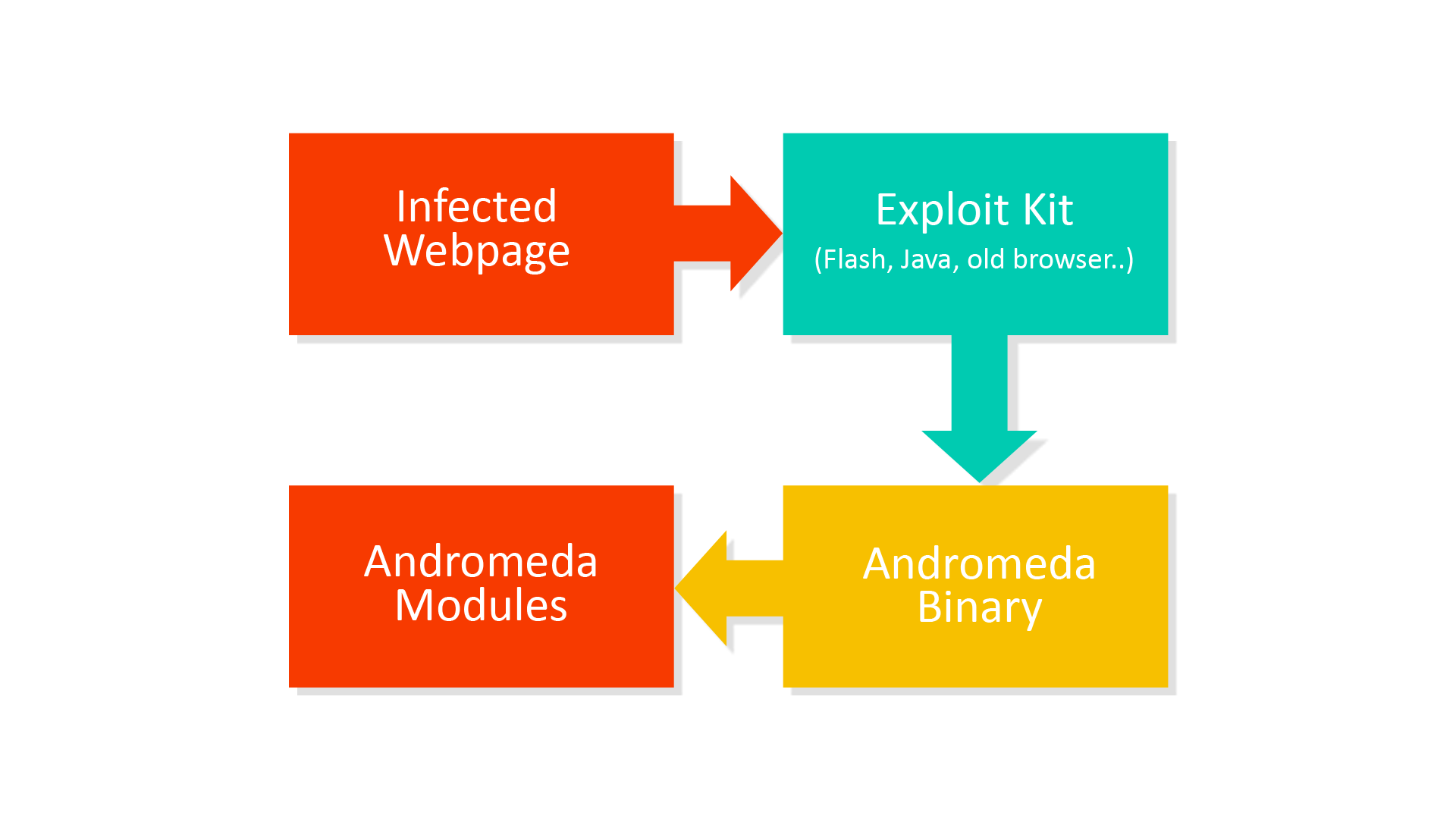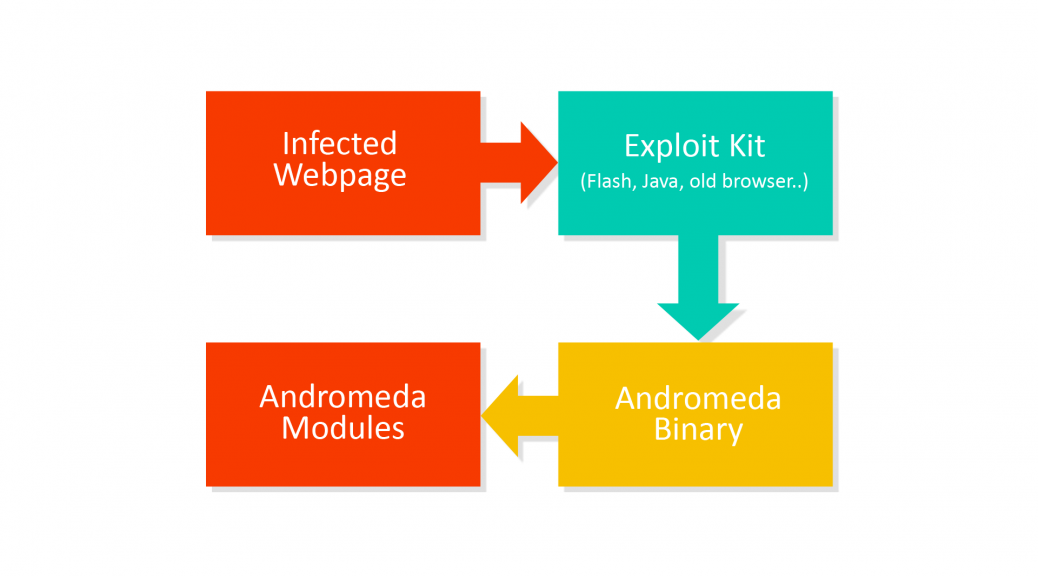Andromeda is one of the longest running and most prevalent malware families to have existed. Andromeda was first discovered in late 2011 and it probably evolved from ngrBot/DorkBot. Throughout its existence, the groups behind Andromeda have used various methods to spread the malware and infect users.
We have seen Andromeda spread via spam email campaigns with infected files attached (doc, xls, pdf, zip.), through illegal download sites, warez (infected cracks, keygens, ..), or infecting users via other phishing campaigns.
Infection vector
In recent months, the authors have mainly focused on spreading Andromeda via exploit kits (Neutrino, Nuclear, Angler,..) located on compromised websites or advertisement services. These exploit kits are mainly found on a dubious sites (p0rn, warez, video streaming sites, share sites etc.) but occasionally appear on trusted sites as well.

![]()
